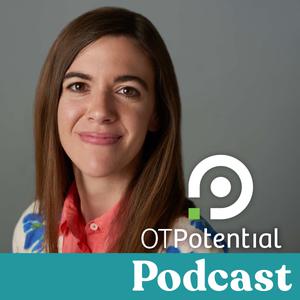
OT Potential Podcast | Occupational Therapy CEUs
Sarah Lyon, OTR/L
This podcast is for occupational therapy practitioners and students looking to keep up with evidence based practice. Every other week, we discuss one influential OT-related journal article which will be available for CEU credit when you join the OT Potential Club.
- 1 hour 24 minutes#96: OT and Value-Based Care with Dana Strauss
We’ve all known for a while that the current fee-for-service models that most occupational therapists operate under are bad for patients and bad for healthcare.
Why?
Because it incentives volume of services over quality of services.
If you’re like me, you may feel like you’ve been waiting for years for value based care to really take hold in the United States. But, this new future has felt like a distant reality.
Our guest today, Dana Strauss, PT, DPT, sees things from a different vantage point. As she’ll share in this episode, the future is actually here, it is just not evenly distributed.
Value-based programs have been piloted and they are on the cusp of rapid expansion in the United States. In our episode today, Dana will walk us through the value-based models that are currently out there, what ones are coming, and what you as an OT professional can do to prepare for this much-needed new reality.
You can find more details on this course here:
https://otpotential.com/ceu-podcast-courses/ot-and-value-based-care
Here's the primary research we are discussing:
Value-based outcome evaluation methods used by occupational therapists in primary care: A scoping review2 January 2025, 4:00 pm - 1 hour 1 minute#95: What is OT in 2025? with Sarah Brzeszkiewicz
Through OT Potential, we’ve released over 94 episodes all exploring new influential OT research. As we enter 2025, it’s time to reflect on the research and ask:
What trends are we seeing in OT? How is new research enriching how we think about our practice?
In this 1 hour-episode, we’ll talk about new trends, with a particular focus on what commonalities we see leaders in our field doing in their occupational therapy process. We’ll culminate our discussion by exploring how people describe OT. This will be informed by our OT practice framework, but with a special focus on how we communicate about OT to the public.
For this exploration, we’ll welcome back to the podcast a past guest, who is now working in new frontiers for OT: Sarah Brzeszkiewicz, OTR/L. Together we’ll unpack what all of these trends mean for your OT practice.
You can find more details on this course here:
https://otpotential.com/ceu-podcast-courses/what-is-ot-in-2025
Here's the primary research we are discussing:
Occupational therapy practice framework: Domain and process—Fourth edition19 December 2024, 4:00 pm - 1 hour 10 minutes#94: OT and Clinical Decision Support with Brad Willingham
Artificial intelligence is ushering a new era of healthcare tools. These range from ambient listening to streamlined practice management. But, the AI-supported that I believe will truly transform occupational therapy is:
Clinical Decision Support.
To be honest, it often feels like we have more clinical decision barriers than we have support. Our EMRs currently give us a set number of checkboxes, which massively pigeonhole our services, and often DO NOT reflect the kinds of best practice we teach here at OT Potential.
But, on the near horizon is dynamic point-of-service support that will help you choose the right assessments, set the right goals, and pursue the right treatment path for the patient in front of you.
Oh, and it will also be watching for red flags.
This is a lot to wrap our minds around. But, if we do it well, I think we will future proof our profession for changes to payment models and regulations, because it will so drastically increase our value.
In this course, we’ll review a new journal that outlines clinical decision support across 6 domains. Then, to walk us through what’s here now and what’s coming soon, I’m so thankful to welcome Brad Willingham, PhD, a clinical research scientist at Shepherd Center who has been focused on how AI is going to support clinical decision support.
You can find more details on this course here:
https://otpotential.com/ceu-podcast-courses/ai-and-clinical-decision-support
Here's the primary research we are discussing:
Advancing clinical decision support: The role of artificial intelligence across six domains.5 December 2024, 4:00 pm - 1 hour 1 minute#93: OT and BPPV with Jeff Walter
The Epley maneuver is a 💎 rare gem 💎 in the OT toolkit.
A patient can walk into our treatment room, and they can walk out cured.
They can walk out with instant relief.(Yes, there is nuance to this. Sometimes the maneuver needs to be repeated. Sometimes it simply doesn’t work. There are important contraindications.) But, the other thing that makes this a GEM is that more so than any other condition we treat there are clear clinical guidelines for treatment of benign paroxysmal positional vertigo (BPPV).
But, despite the amazing power of this treatment, and the swath of research behind it. Many people fail to have their BPPV identified and treated in a timely manner.
In today’s article, we get to learn about a trauma center that trained their therapists in managing BPPV after TBI, and were able to reduce their referrals to neurology.
You are going to have so many questions after reading this article, and that’s why I am so thankful to welcome to the podcast, Jeff Walter, a PT who has devoted much of his career to treating and teaching on this condition.
You can find more details on this course here:
https://otpotential.com/ceu-podcast-courses/ot-and-bppv
Here's the primary research we are discussing:
Does training therapists to manage benign paroxysmal positional vertigo in patients with acute traumatic brain injury reduce vestibular neurology referrals?21 November 2024, 3:00 pm - 59 minutes 17 seconds#92: OT and Multiple Sclerosis with USA Paralympian Sarah Adam
Multiple Sclerosis (MS) is the most common cause of non-traumatic disability in people aged 18-65 years.
As rehab professionals, we know that exercise is one of the mainstays of treatment for these clients.
Though not definitively established, exercise has the most potential promise to be disease modifying if started early in the course of disease. But, alongside exercise there are other important interventions to consider like fatigue management and education.
In today’s article review, we will look at a massive overview of reviews (72 articles were included!). The article outlines the strength of the evidence being multiple types of rehab interventions.
Then, next week we are excited to welcome to the podcast Sarah Adam, OTD, an occupational therapist with MS who has taken her pursuit of adaptive sports to an elite level—and recently earned Silver in wheelchair rugby at the 2024 Paralympic Games in Paris. Sarah was the first woman to ever play on Team USA’s wheelchair rugby team, also made history as the first woman to score a point during an Olympic wheelchair rugby game. We clearly have so much to learn from Sarah that I know will inspire your OT practice.
You can find more details on this course here:
https://otpotential.com/ceu-podcast-courses/ot-and-multiple-sclerosis
Here's the primary research we are discussing:
Effective rehabilitation interventions and participation among people with multiple sclerosis: An overview of reviews7 November 2024, 3:00 pm - 1 hour 2 minutes#91: Motor Learning in Neuro Rehab with Katie Riccio
As occupational therapists, many of us have witnessed the wonder of motor learning in neuro rehab.
Yet despite years of research attempting to identify the most effective post-stroke interventions, the reality is that our understanding of how to improve recovery of function remains incomplete.
The article we are reviewing today serves as an update on the state of the science in how new theories of motor control and learning can be incorporated into practice.
The authors put particular emphasis on how new technologies may be needed to truly meet the many principles of neuroplasticity, and in particular they point to virtual, augment, and mixed reality technologies.
After we review the research, we are excited to welcome to the podcast an OT who works for one such virtual rehab solution as their Manager of Clinical Services, Katie Riccio, MS, OTR/L. Katie will share what she has learned about neurorehab in her role. And orient us to the stroke rehab tech tools on the market, how they can intersect with you in-person practice—and what to expect on the horizon.
You can find more details on this course here:
https://otpotential.com/ceu-podcast-courses/motor-learning-in-neuro-rehab
Here's the primary research we are discussing:
Motor Learning in Neurological Rehabilitation24 October 2024, 2:00 pm - 1 hour 13 minutes#90: OT and Ehlers-Danlos Syndrome with Emily Rich
Unfortunately, research on the lived-experience for those with Ehlers-Danlos Syndrome shows us that we as a profession need to be doing a better job.
People with Ehlers-Danlos Syndrome report:
- A lack of reliable information for themselves
- Social stigma from peers.
- Lack of awareness of EDS in the healthcare community
As occupational therapy professionals, there is much we can contribute to supporting this population. And, today we’ll look at a self-management program that is grounded in behavior change theory and we co-designed with people with lived experience of EDS.
Next week we will welcome to the podcast, an occupational therapist who has EDS and also treats EDS clients in her clinical practice, Emily Rich, PhD, OTR/L. Emily and I will discuss self-management, along with assessment and treatment of EDS.
You can find more details on this course here:
https://otpotential.com/ceu-podcast-courses/ot-and-ehlers-danlos-syndrome
Here's the primary research we are discussing:
Developing a self-management intervention to manage hypermobility spectrum disorders (HSD) and hypermobile Ehlers-Danlos syndrome (hEDS): an analysis informed by behaviour change theory.10 October 2024, 2:00 pm - 1 hour 16 minutes#89: AI in Documentation with Dennis Morrison
In 50 years, you will look back on your occupational therapy practice and see a clear line in the sand between pre-AI augmented documentation and today.
Ambient AI augmented documentation is going to:
✅Make documenting QUICKER
✅Make your notes HIGHER QUALITY
✅And, transform how you interact with clientsAnd, if we harness this technology correctly, it will improve👏 client 👏outcomes. 👏
Today, we’ll look at an example of the research that is already being published about how an ambient artificial intelligence tool can improve clinical documentation.
Then next week we will welcome to the podcast, Dennis Morrison, PhD, a clinician who has specialized in consulting with AI documentation startups. Together we’ll walk through the state of AI-augmented documentation and the questions of the MANY tools that are coming to the market for OT.
You can find more details on this course here:
https://otpotential.com/ceu-podcast-courses/ai-in-documentation
Here's the primary research we are discussing:
Use of an ambient artificial intelligence tool to improve quality of clinical documentation.26 September 2024, 2:00 pm - 1 hour 5 minutes#88: OT and Driving with Ganesh M. Babulal
The population of the United States is older than it has ever been.
And, by 2050 the older adult population (>65 years) is projected to increase another 47% (from 58 million in 2022 to 82 million by 2050). This will transform many aspects of our society—and one change we need to prepare for is:
The safety of older drivers.
Because by 2050 the older adult population (>65 years) will make up 25% of all drivers.
You may be aware that our youngest, newly licensed drivers are the most likely to be in a crash— but it is older drivers who are more likely to be in a fatal crash.
In our featured article from JAMA gives a high-level overview of the complex driving needs of an older population—and tucked inside you’ll see OT’s role in helping to address these needs.
After we review the article, we’ll welcome one of the article’s authors Ganesh M. Babulal, PhD, OTD, MSCI, MOT, who leads the DRIVES Project at Washington University School of Medicine in St. Louis. Through this project he is working to understand how preclinical Alzheimer’s disease (AD) impacts driving behavior.
You can find more details on this course here:
https://otpotential.com/ceu-podcast-courses/ot-and-driving
Here's the primary research we are discussing:
Addressing the complex driving needs of an aging population.5 September 2024, 2:00 pm - 1 hour 4 minutes#87: Community-based OT with Ryan Lavalley
In our OT work with individuals, there can be a feeling of futility.
As there is a growing collective consciousness around what we, as OT professionals, experience day in and day out:
The communities in which we live have such a profound impact on our health.
And, we can fail individuals by focusing only on their individual choices—and not the larger driving forces of their lives.
I think this expanding view of health is why we see so much interest in community practice from students, new grads, and tired clinicians. Community practice does have a long history in occupational therapy, but currently very few clinicians find full-time work in this practice area. The authors of this course’s featured article, believe this may be in part to a lack of frameworks for community-based OT. So, today we’ll explore the framework they put forth and their call to “reimagine occupational therapy clients as communities.”
Next week on the podcast, we will welcome Ryan Lavalley, PhD, OTR/L. Dr. Lavalley is the founder and primary lead of the Community Practice Lab at UNC School of Medicine.
You can find more details on this course here:
https://otpotential.com/ceu-podcast-courses/community-based-ot
Here's the primary research we are discussing:
Re-imagining occupational therapy clients as communities: Presenting the community-centred practice framework.22 August 2024, 2:00 pm - 1 hour 7 minutes#86: Emotional Disability and OT with Michelle Flemen-Tung
Children with emotional disability (also known as emotional disturbance) are significantly more likely than children with other disabilities to:
- NOT be integrated into regular classrooms
- Experience a disciplinary removal
- Drop out of school
Over the years, multiple social-emotional learning (SEL) interventions have been developed to support children with emotional disabilities. But, New York City Public Schools found that one-size-fits all programs were not sufficient for their student population.
So, the district created—and began studying—an educational pilot called the Path Program. At the heart of this program are OT professionals and occupational therapy concepts.
The journal article we are reviewing in this 1-hour CE course describes the research-practice partnership that supported this program’s development—and the role of trauma-informed care in social-emotional learning interventions.
After we review the article, we will welcome Michelle Flemen-Tung, MSEd, the program director for the Path Program. She will share concrete ways we can all improve the support we provide to kids with emotional disabilities.
You can find more details on this course here:
https://otpotential.com/ceu-podcast-courses/emotional-disability-and-ot
Here's the primary research we are discussing:
Adapting SEL interventions to meet student needs: A research-practice partnership supporting students with emotional disabilities.8 August 2024, 3:00 pm - More Episodes? Get the App
Your feedback is valuable to us. Should you encounter any bugs, glitches, lack of functionality or other problems, please email us on [email protected] or join Moon.FM Telegram Group where you can talk directly to the dev team who are happy to answer any queries.
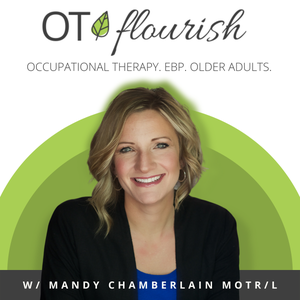 OT Flourish Podcast | Occupational Therapy
OT Flourish Podcast | Occupational Therapy
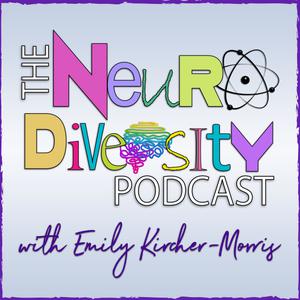 Neurodiversity Podcast
Neurodiversity Podcast
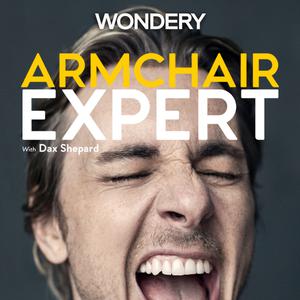 Armchair Expert with Dax Shepard
Armchair Expert with Dax Shepard
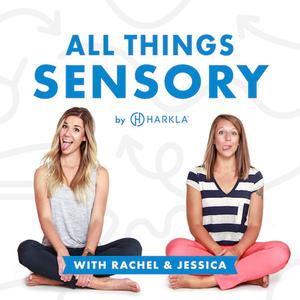 All Things Sensory by Harkla
All Things Sensory by Harkla
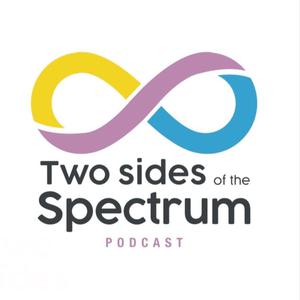 Two Sides of the Spectrum
Two Sides of the Spectrum
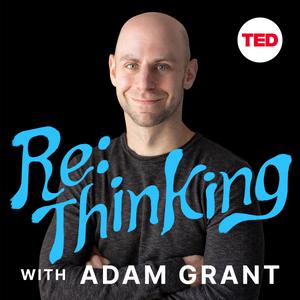 ReThinking
ReThinking